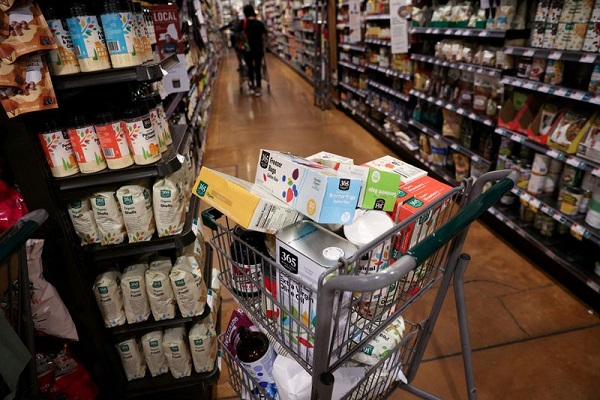Gold prices hover near record peaks as Fed rate cut bets mount
Investing.com -- It’s premature to conclude tariffs won’t contribute to higher inflation, according to RBC Capital Markets strategists.
While many companies appear to be managing the current trade environment, the team cautions that the full impact is still likely to emerge in the coming months.
“Our overall impression from 2Q25 reporting season is that companies are managing through tariffs fairly well so far, but it’s still too early to assume tariffs won’t generate inflation pressures,” strategists led by Lori Calvasina said in a note.
They point out that a number of companies flagged the second half (2H) of 2025 as the period when tariff-related cost effects are expected to materialize more clearly.
This view was reinforced by earnings commentary from firms such as Otis (NYSE:OTIS), Genuine Parts Co (NYSE:GPC), Deckers (NYSE:DECK), and Tractor Supply (NASDAQ:TSCO), all of which indicated that the real financial consequences of tariffs—including pricing changes—would likely be felt later this year.
The note also pointed to consumer-facing companies like O’Reilly Automotive (NASDAQ:ORLY), which expressed concerns about how shoppers might react to broad-based price increases if they occur in the back half of 2025.
While some companies are coping well, “the ability to manage through tariffs (or the anticipation of being able to do so in the future) has not been uniform," strategists said. Companies have cited mitigation strategies including global price increases, supply chain adjustments, cost reductions, and targeted surcharges.
“Tariff impacts may show up more acutely this fall,” strategists said, warning that these pressures could arrive at a time when U.S. equity markets typically face seasonal weakness.
This aligns with new analysis from RBC Economics on how tariffs filter into the broader economy, suggesting the inflationary path remains incomplete.
Even as some firms report near-term resilience, RBC remains cautious. “It’s also far too early to assume tariffs won’t generate some upward inflation pressures or other challenges in the economy,” the team said.
Looking beyond Q2, the strategists argue that the “real test for tariff impacts is 2H, and perhaps even early 2026.”
